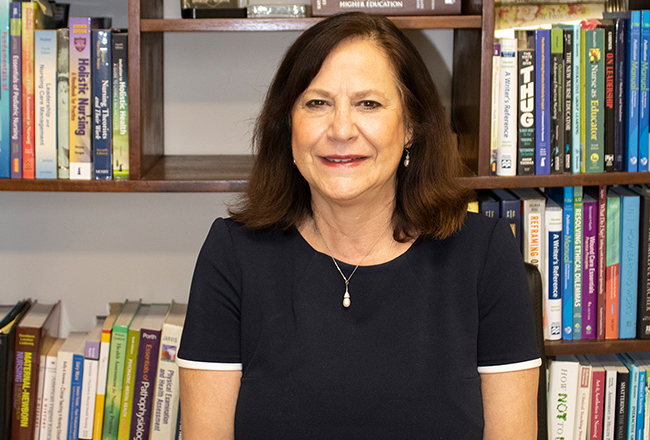Debra Simons: Already lonely older adults are suffering under COVID-19 social distancing
 This is a challenging time for older adults, whose routines and support systems may be disrupted”¯ because of social”¯ distancing.
This is a challenging time for older adults, whose routines and support systems may be disrupted”¯ because of social”¯ distancing.
”¯Although social distancing is considered critical in slowing the spread of the coronavirus, nonessential social services that older adults have relied upon have come to a halt. ”¯Long before the emergence of COVID-19 social isolation and loneliness were already preexisting conditions in older adults.
Joan ”¯Stephenson reported”¯ in the March 2020 JAMA Health Forum that older adults are more likely to have factors that predispose them to isolation or loneliness, such as living alone or losing a loved one, as well as living with chronic illness, vision loss and impaired hearing.”¯”¯
Many older adults have resorted to television as a means to stay occupied, however, steady streams of messages about COVID-19,”¯ while”¯ informative,”¯ may not be helpful to ”¯their mental health. ”¯Most people ”¯are ”¯finding it difficult to wrap their minds around”¯ this invisible monster. The”¯ anxiety of contracting the disease,”¯ as well as the increase in loneliness and isolation ”¯from social distancing,”¯ can worsen and trigger symptoms. ”¯Even those not prone to mental health issues can find it difficult to ”¯comprehend what is happening.”¯”¯
With technological”¯ advances, the world has access to ”¯an enormous amount of data. And ”¯with rhetoric high, sifting through most of it ”¯can be ”¯a”¯ daunting ”¯task. While individuals”¯ are running to the market to stock up on paper items and food,”¯they”¯ are neglecting ”¯to take stock of their ”¯emotional ”¯and mental well-being. We are creatures of habit”¯ and ”¯most people like structure. But ”¯the”¯ current ”¯pandemic has forced”¯ many”¯ to abandon ”¯their”¯ familiar routines ”¯and adjust to a ”¯new normal.”¯”¯
Social distancing ”¯not only limits our”¯ face-to-face time, but”¯ creates”¯ challenges ”¯that can lead to cycles of”¯ anxiety and depression. Nagesh Belludi ”¯indicated”¯ in 2008 that 7% of communication is accomplished through our words, including email, but 38% is achieved through talking, and an even larger 55% is”¯ conveyed visually and ”¯through”¯ body language. Taking advantage of technology for video capabilities can increase communication, while helping to”¯reduce”¯the negative effects of”¯social distancing.”¯”¯
But”¯ what can you do if you are not ”¯technologically”¯ savvy or do not have access to a computer?”¯ Well, that little icon on your smart”¯ device, ”¯shaped like a phone,”¯ can come in”¯ very”¯ handy.”¯The use of your ”¯phone ”¯connects you to others and ”¯helps ”¯boost”¯ you into that 38% of much needed ”¯communication.”¯”¯
While the news media is another way for older adults to connect, ”¯it”¯ can feel overwhelming and confusing. ”¯In some cases, reading,”¯watching”¯ and listening to the news ”¯can cause more harm than good.”¯ Be careful not to let older adults fall prey to unsubstantiated opinions and unreliable ”¯information.”¯”¯ Mental health advocate Katherine Ponte recommends that we”¯limit”¯ our time focusing ”¯on the news and stick to only a few reliable sources, ”¯such as the Centers for”¯ Disease ”¯Control and Prevention.”¯
The American Association of Retired Persons ”¯(AARP)”¯ can be a valuable resource ”¯with their Tele-Town Hall.”¯”¯ Keeping busy is a good distraction”¯for all of us. This may be a good time for them to catch up on some ”¯book ”¯reading, movies, housework or letter writing. Puzzles and drawing can also distract you”¯ from current events. Checking in with friends and family you haven”™t spoken to in a while can ”¯help you feel”¯ more connected and ”¯less isolated and alone.”¯”¯
Now,”¯ more than ever,”¯ people need to protect their”¯ mental and physical ”¯health. ”¯It”™s often hard not to reach for the comfort foods that bring us instant gratification, but ”¯remember, ”¯that satisfying feeling dissipates after the last bite. At a time when”¯ a person feels out of control,”¯nourishing”¯ one”™s ”¯body and mind can be controlled ”¯through thoughtful and deliberate”¯ choices.
There are great ”¯health benefits to”¯ deep breathing”¯ and meditation. ”¯Go for a walk and stretch. Choose healthy snacks such as fruit, popcorn and raw ”¯vegetables.”¯ Alcohol and drugs will only compound problems.”¯ And last, ”¯but most certainly not least, try ”¯to include humor ”¯in your daily routine.”¯The benefits of a good laugh”¯ will outlast a ”¯chocolate covered morsel any day.”¯
Debra Simons is the dean of the School of Nursing & Health Sciences at Manhattanville College and a fellow with the New York Academy of Medicine. She can be reached at debra.simons@mville.edu.